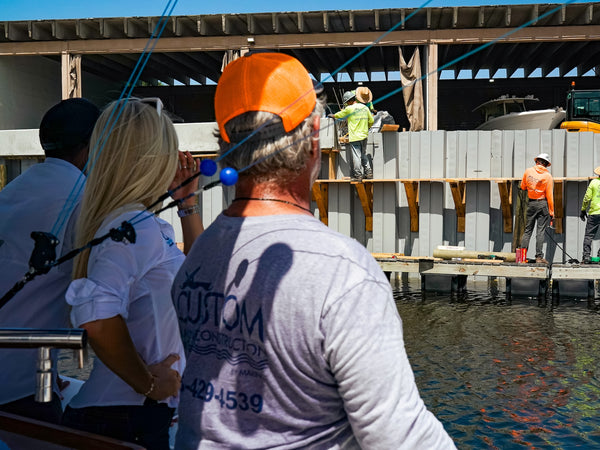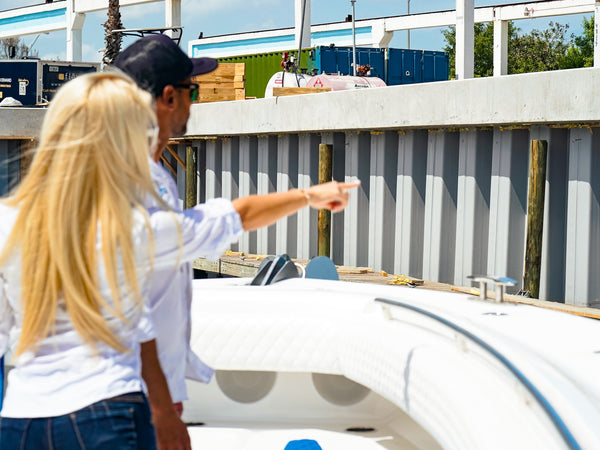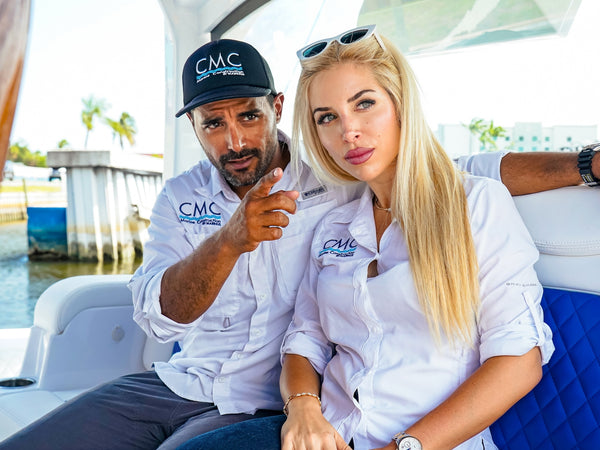CMC designs and constructs numerous dock types for your residential or commercial waterfront property.
CUSTOM DOCKS



FIXED & FLOATING
CMC specializes in new construction and remodeling/repair of existing docks and slips of all kinds.



CUSTOM DOCKS EXPLAINED:
Custom marine docks can be broadly categorized into fixed (stationary), removable (sectional/wheel-in), and floating docks, with each type offering unique advantages based on location, water conditions, and user needs. Material choices like aluminum, wood, and composite decking further allow for customization to suit aesthetic preferences and functional requirements.
1. Fixed (Stationary) Docks:
DESCRIPTION: These docks are securely anchored to the shoreline or driven pilings, providing a stable platform.
BEST SUITED FOR: Areas with minimal water level fluctuations and stable bottoms.
MATERIAL CONDITIONS: Can be constructed from wood, aluminum, or steel, with various decking options like composite or wood.
2. Removable (Sectional/Wheel-in) Docks:
DESCRIPTION: These docks are made of sections that can be easily connected or disconnected, offering flexibility and ease of installation and removal.
BEST SUITED FOR: Areas with fluctuating water levels, seasonal use, or where fixed docks are not feasible.
Types:
SECTIONAL DOCKS: Modular sections that can be configured in various layouts.
WHEEL-IN DOCKS: Similar to sectional docks but with wheels for easy rolling in and out of the water
MATERIALS: Typically feature aluminum or steel frames with decking options like composite or wood.
3. Floating Docks:
DESCRIPTION: These docks float on the water's surface, supported by buoyant floats, and are ideal for fluctuating water levels.
BEST SUITED FOR: Areas with significant water level changes, deep water, or unstable bottoms.
MATERIALS: Can be constructed from various materials, including aluminum, plastic, and composite materials.
FEATURES: Often offer modular and customizable designs, with options for adding accessories and features.
4. Other Considerations:
DECKING MATERIALS Aluminum, wood (treated or hardwood), composite, and PVC are common decking options, each with its own characteristics regarding maintenance, durability, and aesthetics.
SHORELINE CONDITIONS: The type of shoreline and water depth influence the best dock type for a specific location.
ENVIRONMENTAL FACTORS: Consider factors like water salinity, potential for ice or storms, and the impact on wildlife and water flow when choosing a dock type.
PERMITS: Most fixed docks require permits due to their impact on the shoreline and environment.
CUSTOMIZATION: Dock design and layout can be customized to meet specific needs, including size, shape, and the addition of accessories like boat lifts, cleats, and seating areas.





